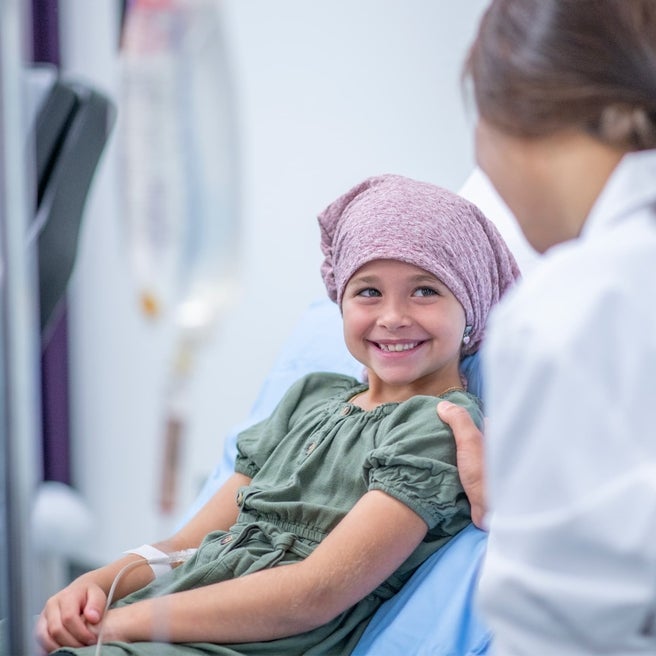Advances in childhood cancer treatment have resulted in significant increases in survival rates. But radiation, chemotherapy and surgery used to successfully treat childhood cancers may lead to what are called "late effects" which can be physical or psychological.
Common late effects of pediatric cancer
While many childhood cancer survivors are doing well and have few, if any, medical problems related to their cancer therapy, some survivors will experience side effects of their treatment later in life:
- Cardiopulmonary (heart abnormalities, reduced lung function)
- Musculoskeletal (scoliosis, asymmetry of bone or soft tissues)
- Dental (short roots, missing teeth)
- Eyes (cataracts)
- Nephrology (kidney disease, hypertension)
- Endocrine (growth failure, thyroid hypofunction, infertility)
- Neurocognitive (learning disabilities, memory loss)
- Psychological (depression, post-traumatic stress)
- Second cancers/tumors, benign or malignant
Staying healthy as a childhood cancer survivor
Although there may not be any late effects at this time, it is important for every cancer survivor to know about their treatment and to understand how that treatment may have the potential for long-term complications. Survivors should know how to keep themselves as healthy as possible as they grow older.
Most survivors who see a family practitioner, internist or pediatrician regularly will also benefit from visits with experts who specialize in the late effects of childhood cancer, and should have a minimum of one visit a year with a specialist who understands their medical history and long-term needs.
For some patients, there may be a point in time when they do not need the level of care provided in a survivorship clinic like the one at Children's Hospital of Philadelphia. We will work with survivors to determine the best plan for follow-up care.
Resources to help
Late Effects of Pediatric Cancer Resources
Childhood Cancer Survivorship Program Resources
We have created resources to help you find answers to your questions and feel confident with the care you are providing your child at home.
